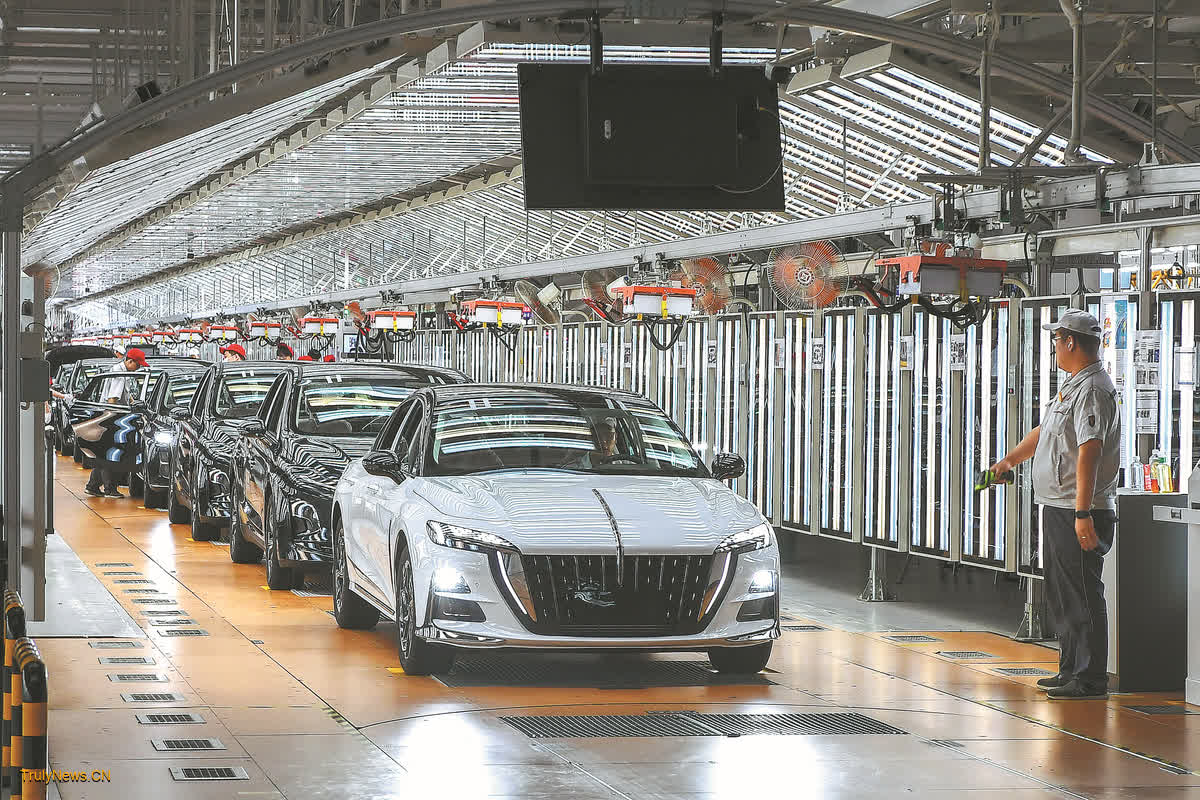
Changchun, the capital of Jilin province and a major industrial hub in China’s northeastern region, aims to build new industrial chain clusters to drive its economic transformation and growth, according to Zhang Enhui, secretary of the Communist Party of China Changchun Municipal Committee.
On its journey toward high-quality growth, the city is committed to accelerating the development and clustering of five strategic emerging industries — biopharmaceuticals, optoelectronics, aerospace, new materials and new energy, Zhang said in an exclusive interview with China Daily.
Through these moves, which are designed to respond to China’s call for steps to develop new quality productive forces, the city seeks to utilize innovative technologies to drive the transformation to digitalized, green and low-carbon growth.
The ultimate goal is to establish a modern industrial system anchored in the real economy, said Zhang, who also is a member of the Standing Committee of the CPC Jilin Provincial Committee.
“Backed by a well-developed industrial system, and the research and development capabilities of universities, we will count on innovation as the key driver of development, aiming to revitalize and upgrade traditional industries through technological advancements, while simultaneously fostering and expanding emerging industries,” he added.
China’s central authorities have vowed in recent years to renew efforts to revitalize Northeast China — a commitment that began in 2003.In 2018, President Xi Jinping chaired a symposium on further promoting the revitalization of the region, and in September last year, he presided over a meeting on promoting the full revitalization of Northeast China in the new era.
Changchun, eager to enhance its economic strength, has established a strategic cooperation committee for technology transfer. The committee, which comprises representatives of government, universities and research institutes, aims to efficiently coordinate innovation resources and integrate scientific and technological capabilities.
The city government has introduced 17 policies to promote technological innovation. It also has jointly established 12 sci-tech industrial parks with universities and research institutes, and founded future science and technology innovation platforms, supported by a fund of 1 billion yuan ($137.5 million).
These efforts have significantly accelerated technology transfer, leading to 2,114 achievements being successfully commercialized in the first three quarters of the year, up 46 percent year-on-year. The value of technology contracts reached 13.25 billion yuan, up 69 percent year-on-year.
To enhance its industrial upgrade, the city has been supporting China FAW Group, a Changchun-based State-owned automaker, and advancing its role as a premier international automobile city. The city’s production of new energy vehicles soared 40.4 percent year-on-year between January and October.
Zhang said that Changchun will also speed up the improvement of planning and policy systems to reinforce the “intelligent transformation and digital upgrade” of traditional manufacturing, as well as its leapfrog development in new technologies, new energy and innovative products.
In addition, Changchun will boost the comprehensive industrial chain development of CRRC Changchun Railway Vehicles Co, a key subsidiary of CRRC Corp, China’s leading rolling stock manufacturer by sales revenue. This initiative will accelerate the expansion of high-end equipment manufacturing with a strong focus on rail transit.
The city will also expedite the establishment of an industrial system primarily focused on biopharmaceuticals and life sciences, complemented by the convention and exhibition industry and emerging consumer goods businesses. Currently, over 160 projects are being implemented.
Highlighting Changchun’s solid industrial foundations, innovation capability and talent resources, Li Kai, a professor specializing in regional economic development at Northeastern University in Shenyang, capital of Liaoning province, said these measures are set to play a pivotal role in the comprehensive revitalization of Northeast China.
“Cultivating new economic growth drivers in Changchun is a pragmatic approach, with innovation spearheading the adjustment and optimization of the industrial structure,” said Li.